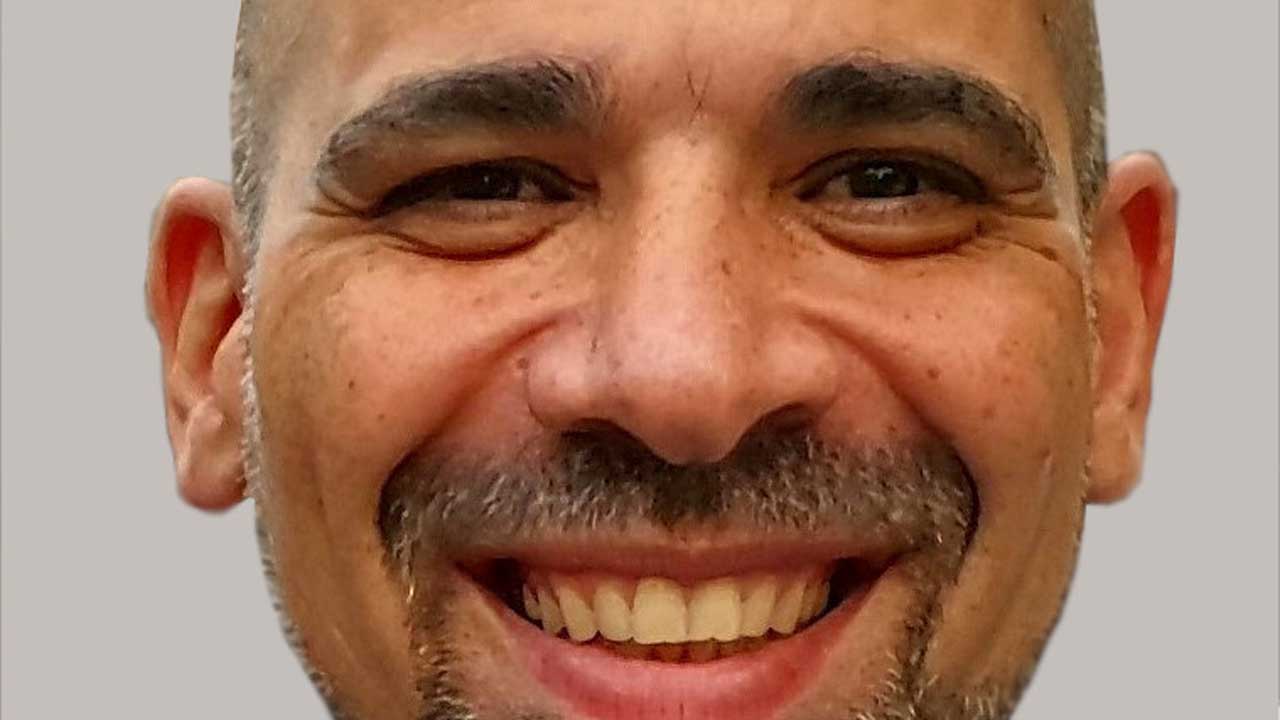
Hossam Kandeel is the Vice President of Ericsson Middle East and Africa. In this interview with ADEYEMI ADEPETUN, he spoke on the ability of the 5G network to help other sectors contribute to the economy. He said the technology could help Africa leapfrog into a knowledge economy.
To what extent has the African continent embraced ICT?
We are strong believers in the power of information and communication technologies for boosting livelihoods, promoting financial inclusion, and improving access to essential services such as health, education, and government services. Ericsson has been connecting Africa for over 100 years and has built wireless networks for every generation – from the early 1G networks to the first advanced 5G networks.
If you look at the mobile money space alone, it has seen tremendous success on the continent as a direct result of the power of connectivity. Mobile money services were instrumental in accelerating financial inclusion while boosting the overall economy. To this day, the success of mobile money can be credited to its speed, cost effectiveness, and accessibility compared to traditional banking services, enabling cross-border transactions safely and securely. This life-changing tool not only created employment opportunities but also removed a major obstacle for aspiring entrepreneurs. So, yes, the African continent has embraced ICT and will continue doing so.
To assert that Africa is embracing ICT, what are the determining variables?
There is tremendous potential for growth in Africa where different countries have significant opportunities to accelerate their digital adoption and advance into a new era of socio-economic prosperity. Many indicators demonstrate that mobile broadband can support sustainable growth, in fact, Accenture estimates that by 2025, the Internet economy could contribute 5.2 per cent of Africa’s Gross Domestic Product (GDP), depending on the intensity of digital technologies usage by businesses.
To that end, we are working closely with the African Telecommunications Union to focus on transforming Africa into a knowledge economy through the development of technologies that boost connectivity and innovation.
We also recently launched the Ghana Graduate Program to attract talented and innovative minds for a chance to work with world-class ICT and technology professionals in areas such as Networking Engineering, Integration Engineering, and IT System operations. Recent network modernisation initiatives include Telkom Kenya’s 4G/LTE expansion plan by adding 2,000 sites by 2023, which will grow four times its current 4G coverage footprint, reaching most citizens across Kenya. Other important milestones recently secured on the continent include MTN Rwanda’s deployment of a Network Operations Centre (NOC), which will support MTN Rwanda’s consumer experience. This agreement represents an important milestone in the provider’s modernisation and digital transformation journey.
In sustaining ICT growth in the region, who should lead the push— the public or private sector?
Successful growth is always determined by public-private partnerships (PPP). It is one way of launching private sector technology and innovation on a national scale to accelerate ICT growth.
Ericsson engages and collaborates with governments, regulators, legislators, businesses, and industry associations to achieve positive and sustainable long-term conditions for the ICT sector.
As an example, we are currently supporting our 6G research through a PPP as the National Science Foundation (NSF) RINGS’ public-private-partnership programme recently announced its winning proposals to advance next-generation network research.
For the continent, what role is Ericsson playing to ensure an upsurge in the number of people adopting ICT?
Very simply put, I see two sides to developing the ICT sector: infrastructure and digital literacy, with the latter holding an often more crucial place. A large portion of the current workforce in Africa will require training or retraining in digital skills. As new and emerging technologies shape industries across the continent, young men and women entering the workforce will need to acquire Industry 4.0 focused skills. Moreover, as digital technologies drive entrepreneurship across Africa, the development of vocational and hands-on skills will become crucial in ensuring economic prosperity in the continent.
Ericsson helps prepare Africa’s workforce by deploying our Connect To Learn (CTL) programmes. Technology-based solutions are developed and implemented to ensure education institutions can connect to the Internet, using digital learning tools and training to enhance digital literacy and skills development at various age and competence levels. As the digital age demands entirely new skillsets, we have been successfully running graduate programmes in Africa aimed at growing digital, technical, and business skills of participating students. The programs allow them to engage with exciting emerging technologies to innovate for the future of the continent.
Ericsson Mobility Report claimed that by the end of this year, 5G subscriptions are expected to reach one billion. What percentage is coming from Africa?
Mobile subscription growth in Middle East and North Africa is predominantly driven by the uptake of 4G services in less mature markets. In 2021, 4G subscriptions increased by about 54 million, while 2G and 3G declined. Digitalisation is a high priority in some countries as a means for transforming economies and societies. Service providers are motivated to undertake extensive network modernisation and expansion to improve network performance, which stimulates further subscription growth. 5G subscriptions grew to around 10 million in 2021, and the region is forecast to reach nearly 200 million 5G subscriptions in 2027.
Also, by the end of 2022, the average monthly usage per smartphone is expected to surpass 15GB, and then grow to 40GB by the end of 2027. What are the indices that are likely to fuel this growth?
Data traffic in sub-Saharan Africa will maintain an upward trajectory, as mobile broadband-capable devices become more accessible. This is due to increasingly affordable price plans and service provider subsidies in some parts of the region. In markets such as South Africa and Kenya, recent spectrum allocations will enable service providers to extend their coverage and capacity of 3G/4G networks, leading to rising data traffic. 3G mobile data traffic is still increasing, but most of the traffic growth is expected to be in the 4G networks. The average data traffic per smartphone is expected to reach 11GB per month over the forecast period.
Nigeria is the largest economy in Africa. How is ICT growth in Nigeria compared to other countries in the region?
ICT has long played an important role in social inclusion, improving employment outcomes, and enabling greater access to education and skills acquisition. As the government rolls out 5G in the country, we are confident it will lead to inclusive growth and allow large sections of the Nigerian society to contribute to the country’s economy. The adoption and rollout of 5G networks is set to significantly boost Nigeria’s socio-economic ecosystem, which in turn favourably positions Nigeria as a competitive economy. Possessing low latency and high capacity, 5G will propel the nation’s ambitions for smart city development, smart transportation, and digitalised healthcare, while also boosting industrial automation across the nation. It is important to note that the seventh pillar of Nigeria’s National Digital Economy Policy and Strategy (NDEPS), which is on Digital Society and Emerging Technologies, has heavily emphasised that digital technologies would play a crucial role in the growth of Nigeria’s economy. With 5G enabling digital technologies like AI and IoT, the rollout of 5G in the country is sure to help the nation realize its digital development agendas.
How true is it that 5G is Africa’s network?
Although 5G infrastructure is still in its early stages in Africa, Communication Service Providers across the continent are making significant efforts to boost infrastructure deployment and enhance their networks to increase the continent’s 5G readiness. Governments across Africa have also been leading the way by introducing initiatives to promote infrastructure projects, as digital infrastructure becomes increasingly impactful to the development of the continent’s economy.
We understand how critical it is for CSPs across the nation to have access to reliable and high-capacity network infrastructure, which is why we have been tirelessly working to support them on their journey. Digital technologies powered by 5G such as AI and IoT are promising to usher in new ways of living, learning, and working throughout Africa. Since these technologies rely on the high throughput and low latency provided by cellular networks like 5G, we are committed to working with CSPs in the region to build a digital infrastructure that supports next-generation networks.
What are the areas where Nigerian ICT development requires massive investments to compete at a higher level?
ICT development is already well underway on the continent and has made significant advancements in Nigeria. As mentioned earlier, the opportunities for exponential growth lay ahead if all aspects of digital development are looked after. Besides providing the infrastructure, we’re also very keen to support operators down to improved consumer experience. To that end, we had announced plans to create an Automation Hub in Nigeria last year.
Ericsson Automation Hub is an open innovation platform, inspired by lean start-up methodology in which the Ericsson team works in close dialog with customers, users, and partners to showcase and reach the high potential that network automation allows in configuration, provisioning, assurance, and orchestration of network services. This will enable service providers to gain the ability in their environments to govern, manage and orchestrate hybrid networks holistically and in real time and as a result, offer an enhanced consumer experience. Through this Hub, we remain committed to providing the right tools and services for ICT prosperity in Nigeria.
In what areas is Ericsson championing its CSR in Nigeria and others?
We strongly believe in the importance of education for the economic development of Africa by building the right foundation to propel a steady ecosystem. Our effort to support education in Africa is a continuous determination and for that we were proud to launch our three-year global partnership with UNICEF, which helps map school connectivity in 35 countries. Our partnership will support the UN’s Giga initiative, a global program led by UNICEF and the International Telecommunications Union (ITU) that aims to connect every school to the Internet. An Economist Intelligence Unit (EIU) report sponsored by Ericsson has found that nations with low broadband connectivity have the potential to realise an increase in GDP by up to 20 per cent by connecting schools to the Internet.
Another key example in supporting education is our “Connect to Learn” program, an initiative that implements ICT in schools often in resource poor settings to enhance the quality and access to teaching and learning resources in a safe, cost effective, and user-friendly way. The program uses the power of mobility, broadband and cloud solutions.
The Connect to Learn initiative has reached over 200,000 students located across 25 countries to date and has assisted in connecting students and teachers in remote villages across Africa with technology tools, digital learning resources, and new interactive forms of teaching methods.






